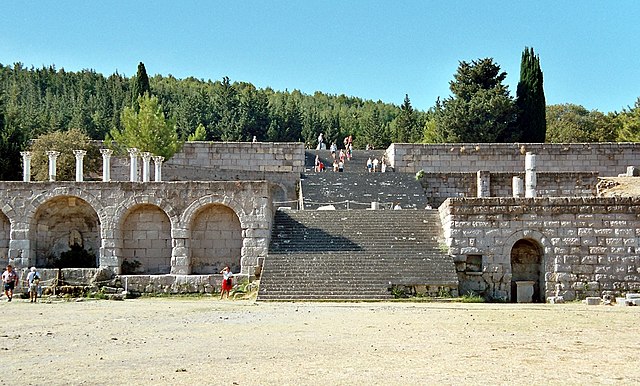Prognosis is a medical term for predicting the likelihood or expected development of a disease, including whether the signs and symptoms will improve or worsen or remain stable over time; expectations of quality of life, such as the ability to carry out daily activities; the potential for complications and associated health issues; and the likelihood of survival. A prognosis is made on the basis of the normal course of the diagnosed disease, the individual's physical and mental condition, the available treatments, and additional factors. A complete prognosis includes the expected duration, function, and description of the course of the disease, such as progressive decline, intermittent crisis, or sudden, unpredictable crisis.
Asklepios and Hippocrates bookend the façade of the Royal College of Physicians of Edinburgh, statuary by Alexander Handyside Ritchie (1804-1870)
Statue of hippocrates at Rangaraya Medical College
Hippocrates of Kos, also known as Hippocrates II, was a Greek physician of the classical period who is considered one of the most outstanding figures in the history of medicine. He is traditionally referred to as the "Father of Medicine" in recognition of his lasting contributions to the field, such as the use of prognosis and clinical observation, the systematic categorization of diseases, and the formulation of humoral theory. The Hippocratic school of medicine revolutionized ancient Greek medicine, establishing it as a discipline distinct from other fields with which it had traditionally been associated, thus establishing medicine as a profession.
A conventionalized image in a Roman "portrait" bust (19th-century engraving)
Illustration of the story of Hippocrates refusing the presents of the Achaemenid Emperor Artaxerxes, who was asking for his services. Painted by Girodet, 1792.
Asklepieion on Kos
A number of ancient Greek surgical tools. On the left is a trephine; on the right, a set of scalpels. Hippocratic medicine made good use of these tools.






